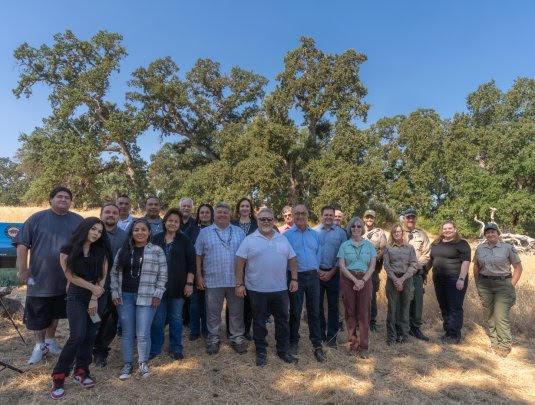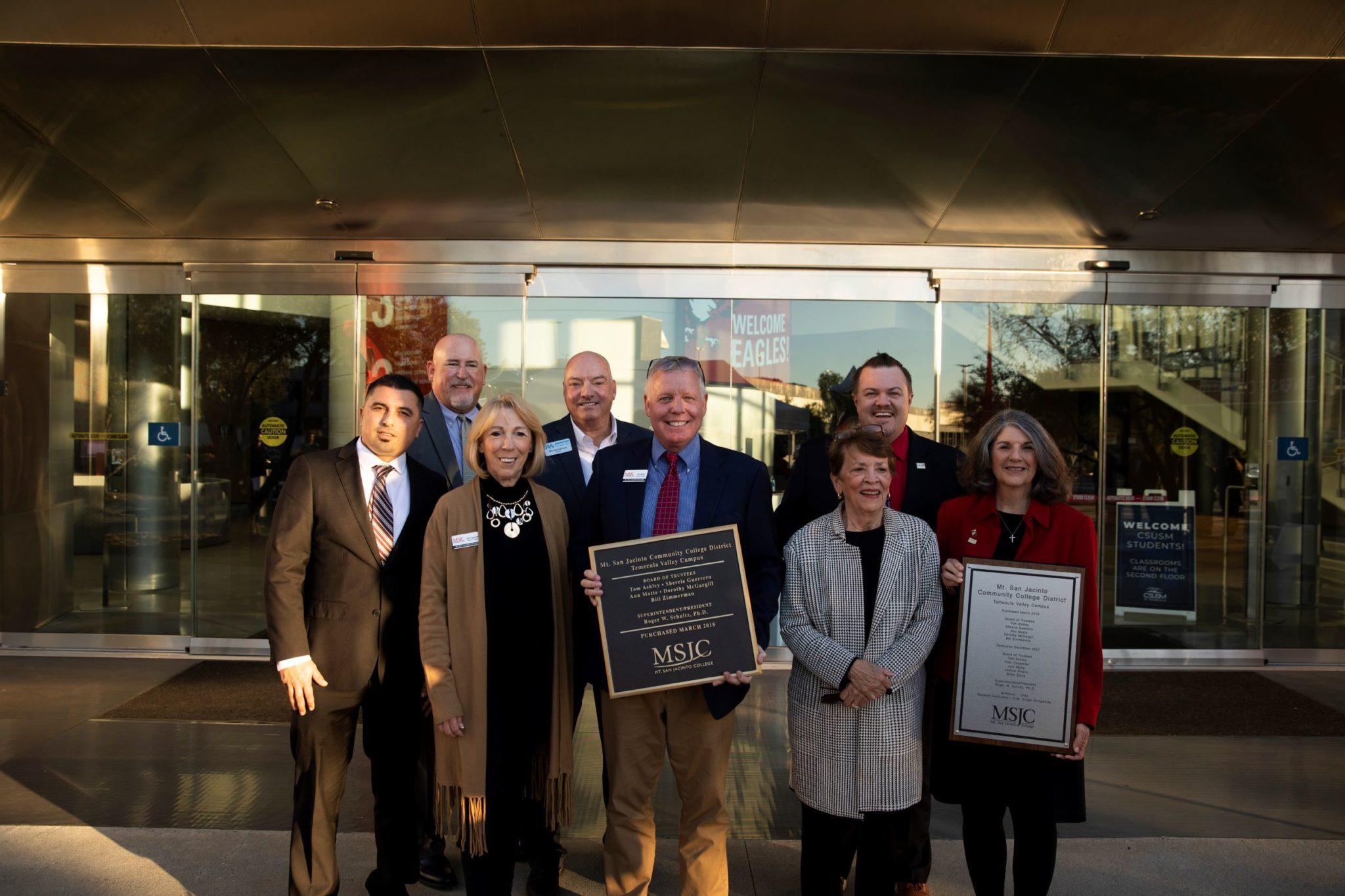The Valley Chronicle - How legalized marijuana affects property owners
How legalized marijuana affects property owners
Landlords may legally prohibit marijuana-related activities
[caption id="attachment_5313" align="alignright" width="576"] By Cooljuno411, via Wikimedia Commons
By Cooljuno411, via Wikimedia CommonsCalifornia’s legalization of marijuana may prove a sticky situation to property owners and landlords, considering it’s in direct contradiction to federal law.[/caption] ■ By Matt McPherson / Columnist Throughout California, the laws governing marijuana have changed dramatically in the past couple of years. Since proposition 64 passed last November, recreational use and cultivation has exploded across the state. In 2015, the state legislature passed The Medical Marijuana Regulation and Safety Act, which created a full spectrum licensing system. Under federal law, however, trafficking and possession of marijuana still remain criminal offenses. So even though cities like San Jacinto have passed ordinances to allow the cultivation, processing and sale of marijuana, the fear of federal illegality still remains. The state of California expects that regulatory agencies will be ready by Jan. 1, 2018 and at that time businesses may apply for a state license. In some counties and cities such as San Jacinto, the licensing process has already begun. Cannabis businesses and facilities already operating in accordance with state and local law prior to 2018 may continue operating until their license applications are approved or denied. It is anticipated that the current system of mutual benefit corporations, nonprofit cannabis collectives and cooperatives will slowly be dissolved by end of 2019. Marijuana is still designated as a Schedule I drug, according to the Controlled Substance Act, which defines marijuana as a drug that has a “high potential for abuse, lack of any accepted medical use, and absence of any accepted safety for use in medically supervised treatment,” according to the U.S. Supreme Court decision in Gonzales vs. Raich. Violation of federal laws can result in a variety of penalties, including fines, jail time, and even the forfeiture of possessions or real estate. The new administration in Washington is fueling uncertainty over criminal enforcement and casting a shadow over Proposition 64. Jeff Sessions, the nation’s new attorney general, is adamantly opposed to the legalization of marijuana and may pursue federal enforcement in states that recently voted to legalize cannabis. On the flip side, back in 2014, Congress passed a widely unknown rider attached to a spending bill (Rohrbacher-Farr Amendment), which prohibited the U.S. Department of Justice from tapping federal funds aimed at prosecuting individuals and marijuana businesses that are in compliance with their respective state laws on medical marijuana. Speculation is rising among lawmakers as to whether the current administration will challenge the amendment, although it has been renewed annually and may continue to be renewed. Property owners in California, especially landlords, need to be aware of their rights when leasing/renting their real estate to businesses and individuals who plan on cultivating marijuana. Prop. 64 grants landlords the discretion to prohibit certain activities on their property. According to the health and safety code, personal rights to cultivate, plant, harvest, process, purchase, obtain, or possess marijuana doesn’t affect the ability of an individual or private entity to prohibit or restrict marijuana use on “the individual’s or entity’s privately owned property.” The code further states the law does not require a landlord to “reasonably accommodate” any medical marijuana users considering there is no accepted medical marijuana use under federal law. Landlords can take steps to protect their property and ensure tenants don’t use marijuana on their property, including drafting a lease to review with potential tenants to confirm they prohibit or control marijuana use. Add a provision to the lease to prohibit marijuana use, cultivation and plants. If these terms of the lease are violated, a landlord can then legally issue a Three-Day Notice to Perform Covenant or Quit. Alternatively, if a landlord permits the use or cultivation of cannabis, it is recommended they ask to see the medical marijuana card and keep it on file along with the lease agreement. The billion dollar marijuana industry is changing the face of real estate throughout California and creating more questions and regulations as it evolves. Many brokerages are requiring certain disclosures on grow houses, considering the moisture can result in fungus and mold issues in the structures. If you are selling or buying a facility related to the marijuana industry, make sure to include as much information as possible on the disclosures to avoid any discourse or violations down the road. Smoking is now required to be listed on the Seller Property Questionnaire. The lingering smell of smoke or the smell of cultivated marijuana has recently become an issue during many real estate transactions. Even if the neighbor is growing marijuana, the property owner is obligated to disclose this during the escrow, if they are in fact aware of it. Matt McPherson is a licensed real estate agent for Coldwell Banker Associated Brokers, BRE # 01362837. Reach him at 951-315-7914 or McPhtown@aol.com.
Soboba Band of Luiseño Indians
staffLeprechauns bring lots of green to Soboba Tribal Preschool
 English, Valley Chronicle: Thu, Feb 25, 2021
English, Valley Chronicle: Thu, Feb 25, 2021
Koi Nation of Northern California and California State Parks
staffKoi Nation of Northern California, USA
English, Valley Chronicle: Thu, Dec 8, 2022
24 Kids Shop with a Cop in Hemet
staff24 Kids Shop with a Cop in Hemet
 English, Valley Chronicle: Thu, Dec 8, 2022
English, Valley Chronicle: Thu, Dec 8, 2022
MSJC Hosts Temecula Valley Campus Dedication Ceremony
staffMSJC Hosts Temecula Valley Campus Dedication Ceremony
English, Valley Chronicle: Thu, Dec 8, 2022
NFPA urges added caution this holiday season, as Christ
staffNFPA urges added caution this holiday season, as Christmas Day and Christmas Eve are among the leading days of the year for U.S. home fires
English, Valley Chronicle: Thu, Dec 8, 2022
Stick to a “Go Safely” Game Plan: Celebrate the Holiday
staffStick to a “Go Safely” Game Plan: Celebrate the Holiday Season Responsibly National “Drive Sober or Get Pulled Over” Enforcement Campaign Begins Dec. 14
English, Valley Chronicle: Thu, Oct 27, 2022
Padilla Hosts Virtual Federal Student Debt Relief Brief
staffPadilla Hosts Virtual Federal Student Debt Relief Briefing to Encourage Californians to Apply
 English, Valley Chronicle: Thu, Jun 9, 2022
English, Valley Chronicle: Thu, Jun 9, 2022
Police Seek Help Locating Hit-and-Run Vehicle
staffPolice Seek Help Locating Hit-and-Run Vehicle
 English, Valley Chronicle: Thu, Jun 9, 2022
English, Valley Chronicle: Thu, Jun 9, 2022
Four CSUSB alumni win top award for radio show
staffFour CSUSB alumni win top award for radio show
English, Valley Chronicle: Thu, Jun 9, 2022
Follow-up: Plane Crashes Near Residential Homes in Heme
staffFollow-up: Plane Crashes Near Residential Homes in Hemet
English, Valley Chronicle: Thu, Jun 9, 2022
CSUSB Nursing Street Medicine Program partners with new
staffCSUSB Nursing Street Medicine Program partners with new mobile medical clinic
English, Valley Chronicle: Thu, Jun 9, 2022
Padilla Joins Farm Workers for a Workday as Part of the
staffPadilla Joins Farm Workers for a Workday as Part of the ‘Take Our Jobs’ Campaign
English, Valley Chronicle: Thu, Mar 24, 2022
CHP plans DUI checkpoint in Hemet Valley
staffCHP plans DUI checkpoint in Hemet Valley
English, Valley Chronicle: Thu, Mar 24, 2022
Don't undermine scientific discovery -- ever, but espec
staffDon't undermine scientific discovery -- ever, but especially now
English, Valley Chronicle: Thu, Mar 24, 2022
C.W. Driver companies breaks ground on new three-story
staffC.W. Driver companies breaks ground on new three-story stem education building
 English, Valley Chronicle: Thu, Mar 24, 2022
English, Valley Chronicle: Thu, Mar 24, 2022
35.3% Of Unvaccinated California Residents Cite Governm
staff35.3% Of Unvaccinated California Residents Cite Government Distrust
English, Valley Chronicle: Thu, Mar 24, 2022
ICYMI: Padilla Highlights From Judge Jackson’s Supreme
staffICYMI: Padilla Highlights From Judge Jackson’s Supreme Court Confirmation Hearing
English, Valley Chronicle: Thu, Mar 24, 2022
MSJC Celebrates Groundbreaking of New STEM Building and
staffMSJC Celebrates Groundbreaking of New STEM Building and Opening of New Animatronic Makerspace
English, Valley Chronicle: Thu, Mar 3, 2022
MSJC Receives $500,000 Apprenticeship Grant
staffMSJC Receives $500,000 Apprenticeship Grant
How legalized marijuana affects property owners
Landlords may legally prohibit marijuana-related activities
[caption id="attachment_5313" align="alignright" width="576"] By Cooljuno411, via Wikimedia Commons
By Cooljuno411, via Wikimedia CommonsCalifornia’s legalization of marijuana may prove a sticky situation to property owners and landlords, considering it’s in direct contradiction to federal law.[/caption] ■ By Matt McPherson / Columnist Throughout California, the laws governing marijuana have changed dramatically in the past couple of years. Since proposition 64 passed last November, recreational use and cultivation has exploded across the state. In 2015, the state legislature passed The Medical Marijuana Regulation and Safety Act, which created a full spectrum licensing system. Under federal law, however, trafficking and possession of marijuana still remain criminal offenses. So even though cities like San Jacinto have passed ordinances to allow the cultivation, processing and sale of marijuana, the fear of federal illegality still remains. The state of California expects that regulatory agencies will be ready by Jan. 1, 2018 and at that time businesses may apply for a state license. In some counties and cities such as San Jacinto, the licensing process has already begun. Cannabis businesses and facilities already operating in accordance with state and local law prior to 2018 may continue operating until their license applications are approved or denied. It is anticipated that the current system of mutual benefit corporations, nonprofit cannabis collectives and cooperatives will slowly be dissolved by end of 2019. Marijuana is still designated as a Schedule I drug, according to the Controlled Substance Act, which defines marijuana as a drug that has a “high potential for abuse, lack of any accepted medical use, and absence of any accepted safety for use in medically supervised treatment,” according to the U.S. Supreme Court decision in Gonzales vs. Raich. Violation of federal laws can result in a variety of penalties, including fines, jail time, and even the forfeiture of possessions or real estate. The new administration in Washington is fueling uncertainty over criminal enforcement and casting a shadow over Proposition 64. Jeff Sessions, the nation’s new attorney general, is adamantly opposed to the legalization of marijuana and may pursue federal enforcement in states that recently voted to legalize cannabis. On the flip side, back in 2014, Congress passed a widely unknown rider attached to a spending bill (Rohrbacher-Farr Amendment), which prohibited the U.S. Department of Justice from tapping federal funds aimed at prosecuting individuals and marijuana businesses that are in compliance with their respective state laws on medical marijuana. Speculation is rising among lawmakers as to whether the current administration will challenge the amendment, although it has been renewed annually and may continue to be renewed. Property owners in California, especially landlords, need to be aware of their rights when leasing/renting their real estate to businesses and individuals who plan on cultivating marijuana. Prop. 64 grants landlords the discretion to prohibit certain activities on their property. According to the health and safety code, personal rights to cultivate, plant, harvest, process, purchase, obtain, or possess marijuana doesn’t affect the ability of an individual or private entity to prohibit or restrict marijuana use on “the individual’s or entity’s privately owned property.” The code further states the law does not require a landlord to “reasonably accommodate” any medical marijuana users considering there is no accepted medical marijuana use under federal law. Landlords can take steps to protect their property and ensure tenants don’t use marijuana on their property, including drafting a lease to review with potential tenants to confirm they prohibit or control marijuana use. Add a provision to the lease to prohibit marijuana use, cultivation and plants. If these terms of the lease are violated, a landlord can then legally issue a Three-Day Notice to Perform Covenant or Quit. Alternatively, if a landlord permits the use or cultivation of cannabis, it is recommended they ask to see the medical marijuana card and keep it on file along with the lease agreement. The billion dollar marijuana industry is changing the face of real estate throughout California and creating more questions and regulations as it evolves. Many brokerages are requiring certain disclosures on grow houses, considering the moisture can result in fungus and mold issues in the structures. If you are selling or buying a facility related to the marijuana industry, make sure to include as much information as possible on the disclosures to avoid any discourse or violations down the road. Smoking is now required to be listed on the Seller Property Questionnaire. The lingering smell of smoke or the smell of cultivated marijuana has recently become an issue during many real estate transactions. Even if the neighbor is growing marijuana, the property owner is obligated to disclose this during the escrow, if they are in fact aware of it. Matt McPherson is a licensed real estate agent for Coldwell Banker Associated Brokers, BRE # 01362837. Reach him at 951-315-7914 or McPhtown@aol.com.
The Valley Chronicle - How legalized marijuana affects property owners
How legalized marijuana affects property owners

Koi Nation of Northern California and California State Parks Renew Memorandum of Understanding and Celebrate Renaming of Ridge and Trail
Koi Nation of Northern California, USA

MSJC Hosts Temecula Valley Campus Dedication Ceremony
MSJC Hosts Temecula Valley Campus Dedication Ceremony
Stick to a “Go Safely” Game Plan: Celebrate the Holiday
Stick to a “Go Safely” Game Plan: Celebrate the Holiday Season Responsibly National “Drive Sober or Get Pulled Over” Enforcement Campaign Begins Dec. 14

Police Seek Help Locating Hit-and-Run Vehicle
Police Seek Help Locating Hit-and-Run Vehicle
Follow-up: Plane Crashes Near Residential Homes in Hemet
Follow-up: Plane Crashes Near Residential Homes in Hemet
Padilla Joins Farm Workers for a Workday as Part of the
Padilla Joins Farm Workers for a Workday as Part of the ‘Take Our Jobs’ Campaign
Don't undermine scientific discovery -- ever, but espec
Don't undermine scientific discovery -- ever, but especially now

35.3% Of Unvaccinated California Residents Cite Governm
35.3% Of Unvaccinated California Residents Cite Government Distrust
MSJC Celebrates Groundbreaking of New STEM Building and
MSJC Celebrates Groundbreaking of New STEM Building and Opening of New Animatronic Makerspace
MSJC Receives $500,000 Apprenticeship Grant
MSJC Receives $500,000 Apprenticeship Grant
24 Kids Shop with a Cop in Hemet
24 Kids Shop with a Cop in Hemet
Stick to a “Go Safely” Game Plan: Celebrate the Holiday
Stick to a “Go Safely” Game Plan: Celebrate the Holiday Season Responsibly National “Drive Sober or Get Pulled Over” Enforcement Campaign Begins Dec. 14

Four CSUSB alumni win top award for radio show
Four CSUSB alumni win top award for radio show
Padilla Joins Farm Workers for a Workday as Part of the
Padilla Joins Farm Workers for a Workday as Part of the ‘Take Our Jobs’ Campaign
C.W. Driver companies breaks ground on new three-story
C.W. Driver companies breaks ground on new three-story stem education building
MSJC Celebrates Groundbreaking of New STEM Building and
MSJC Celebrates Groundbreaking of New STEM Building and Opening of New Animatronic Makerspace










